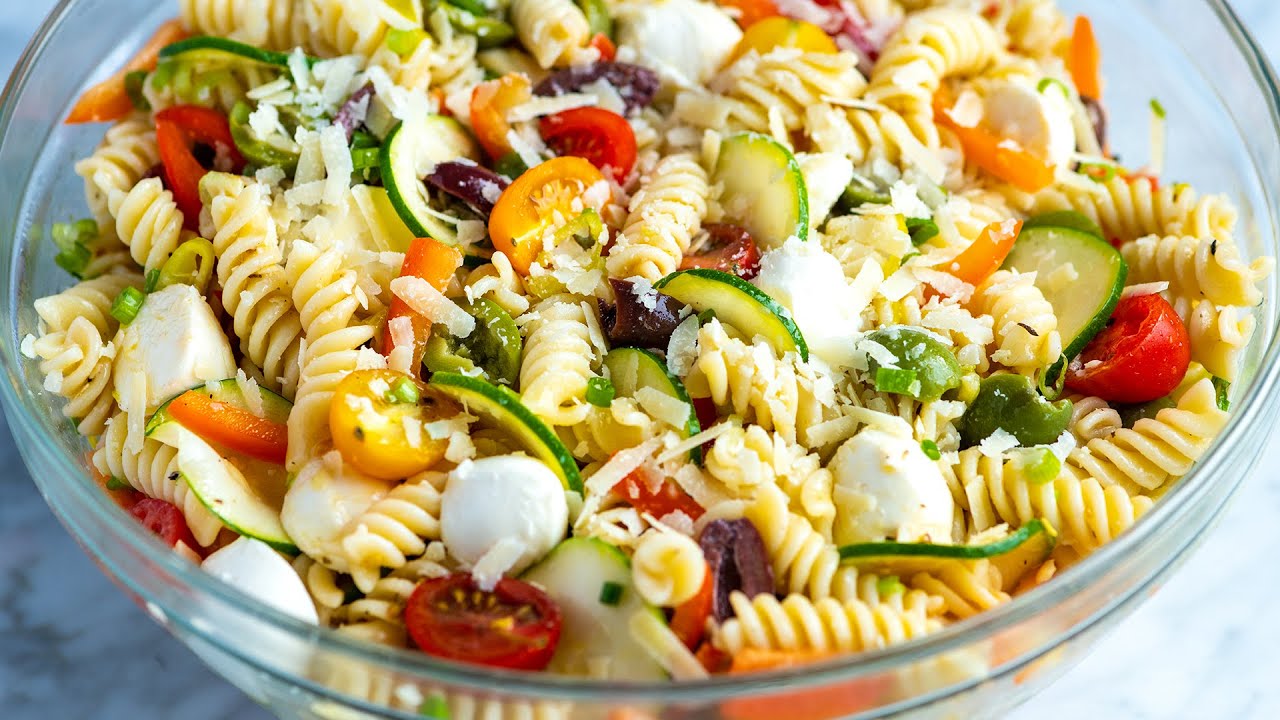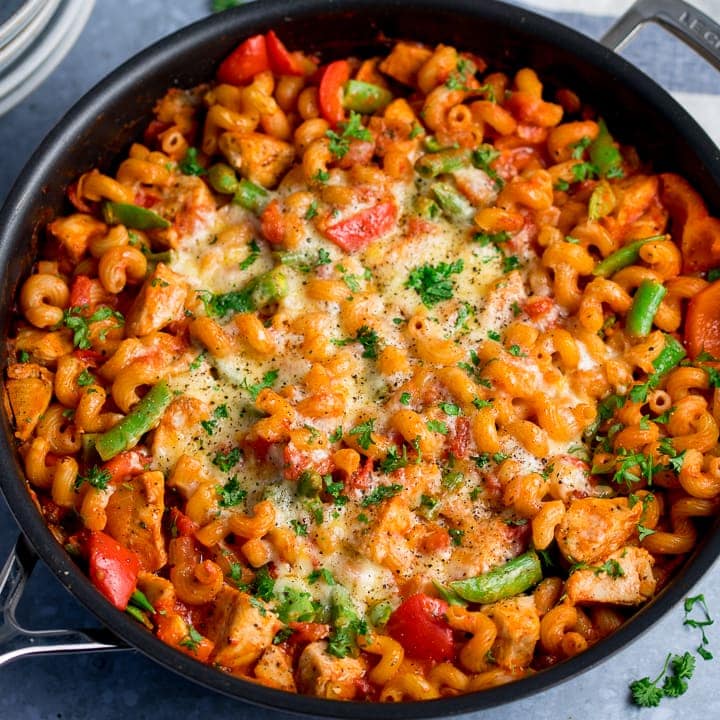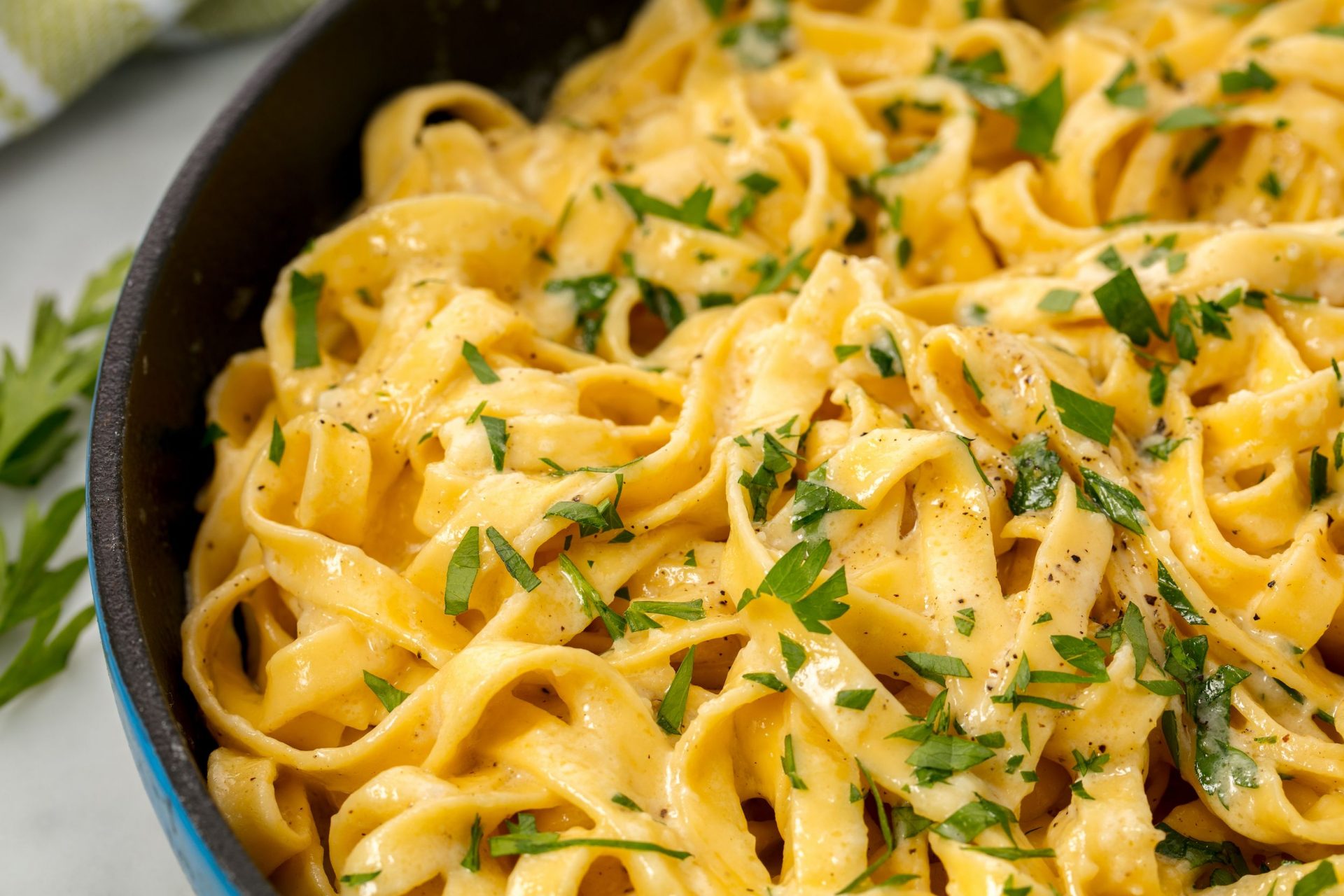
The Only Time It’s Okay To Rinse Pasta
Most pasta cooking directions will never instruct you to wash the pasta, as it will wash away the starchy film that covers the pasta, which helps creamy and heavy sauces stick to the pasta once served. These starches help provide structure to your sauce as well as delicious flavor. By rinsing the pasta, you’re actually making life harder for yourself if you’re choosing to serve pasta warm and with sauce.
So is it ever okay to rinse cooked pasta? Well, there is one exception to this rule: if you plan to serve pasta chilled like a pasta salad, then it is okay. If you’re not going to serve your pasta with a warm sauce, then rinsing it can actually be helpful.
Cold pasta salads benefit from a rinse because it will help lower the overall temperature of the pasta, which is more than okay since it will be served cold anyway. It also helps stop the cooking process, and prevents your pasta from getting mushy and overcooked. Rinsing away the starch will also help the dressing and other salad components from sticking together or clump. Each piece of pasta will remain in tact and singular.

Salting The Pasta Water Is Incredibly Important
The only time it is acceptable to rinse your pasta under water is when you are planning to serve it cold, since this help prevent your pasta salad from becoming gummy or gluey.
There are a lot of other mistakes that people can make while preparing pasta, so it’s important to know ahead of time in order to guarantee a perfect and delicious plate of pasta each time.
The first mistake that people make is under filling the pot or even using a pot that is just too small. When there is not enough water, the added pasta will lower the temperature of the water, causing the cooking process to take longer and resulting in gluey pasta.
Another mistake to avoid is under salting the pasta water. The salt helps prevent the pasta from becoming too starchy and actually helps improve the overall taste of the final product. This step makes a huge different, and we promise you’ll be able to notice a difference. Add the salt in just as the water begins to boil.
Speaking of pasta water, make sure not to dump it all out when draining your pasta. This starchy pasta water is perfect for adding into your sauce in order to thicken it and add wonderful flavor to the final dish.
Have you ever wondered why pasta recipes insist on cooking pasta al dente? That’s because in order to allow the pasta to absorb sauce without overcooking it, it’s important to make sure your pasta has reached al dente before adding in the hot sauce. Finish cooking the pasta in the sauce, rather than assembling everything together at the end when everything is finished cooking.

Don’t Throw Away The Pasta Water








